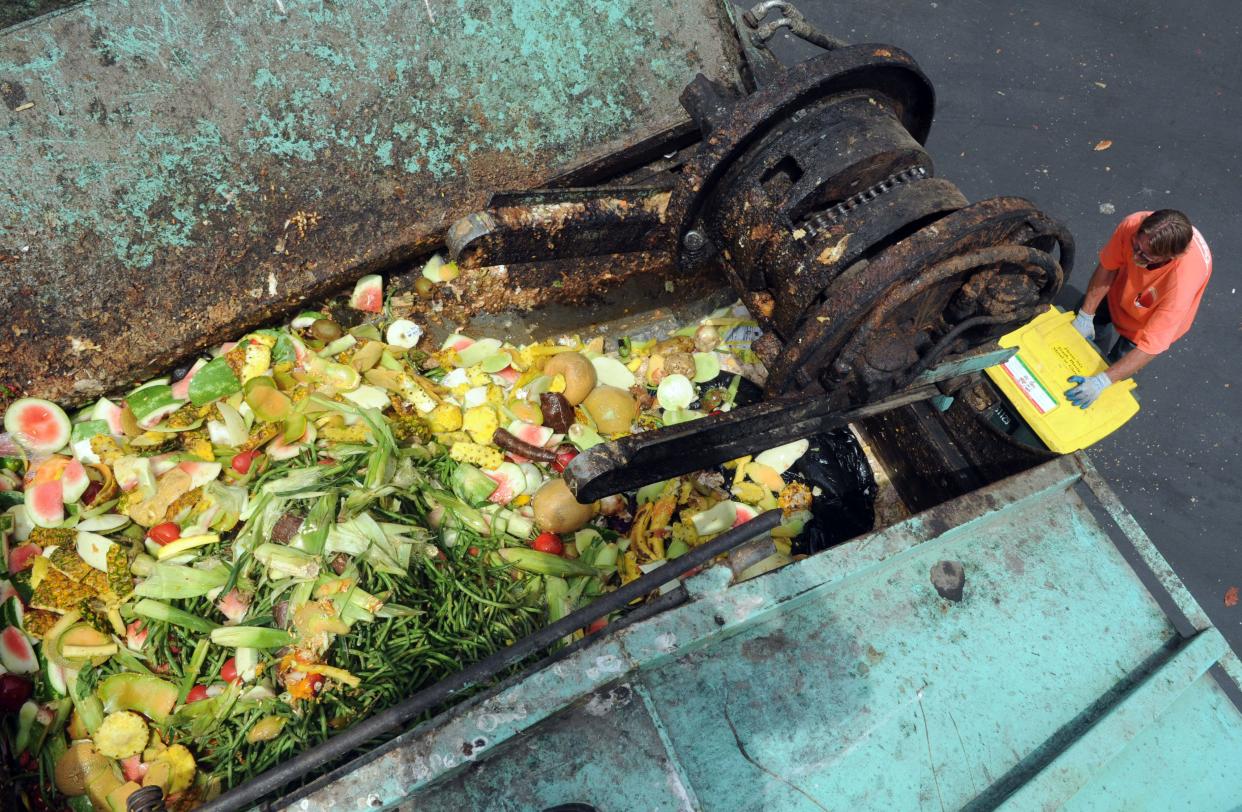Guest column: Food for thought on recycling

Seven months after a new era in organic waste recycling dawned across California, local participation in new recycling programs is growing by the week in Ventura County. The signs are encouraging, but a greater push is needed to meet ambitious statewide goals, particularly regarding food waste.
Since Jan. 1, 2022, when food waste recycling became a statewide mandate, we at E.J. Harrison & Sons, Gold Coast Recycling and Agromin, working with jurisdictions across the county, have offered our customers the first fully local food waste recycling program in the area. In this new effort to fight climate change, all recycled food waste is diverted from landfills and sent to local facilities for processing and composting.
Participation in our program has already grown by 200%, but we still have thousands of customers who need to get on board.
It’s so easy. Residential customers in our service areas — Ventura, Camarillo, Fillmore, Ojai, Carpinteria and unincorporated Ventura County — just need to collect their food waste in plastic or paper bags, securely seal the bags and place them in their yard waste carts for weekly curbside pickup. This residential food waste is then sorted out by Gold Coast and sent to Agromin for processing. Commercial customers who are not currently recycling their food waste must contact us to join the mandatory program or obtain waivers. (Email Harrison contract compliance field supervisor Donald Sealund at donalds@ejharrison.com or contract compliance manager Daniel Harrison at danielh@ejharrison.com.)
These actions are urgent, for the sake of our planet. When organic material, such as food and yard waste, ends up in a landfill, it decomposes and produces methane, a potent greenhouse gas contributing to climate change. When food waste is recycled, it becomes compost, energy, animal feed and other eco-friendly soil and mulch products.
In California, food waste recycling isn’t just sensible, it’s the law. To cut methane emissions, state Senate Bill 1383 began on Jan. 1 to mandate food waste recycling statewide. SB 1383 aims to reduce disposal of organic waste by 75% by 2025, but our planet cannot wait that long. We all must be doing our part now.
State officials say compostable organic materials represent about a third of all the waste that ends up in our landfills. About 18% of all landfill waste is food. If we divert food waste at the target levels, we’ll annually prevent 14 metric tons of emissions over that waste’s lifetime of decomposition — the equivalent of taking 3 million vehicles off the road for a year, Scientific American reported.
To meet the new food waste recycling mandates, industry leaders and jurisdictions in California have had to invest in infrastructure. Harrison has worked with our partner cities and counties, and our partner companies Agromin and Gold Coast, to expand existing facilities and develop new locations that will be needed to recycle all the food material. Through our shared work, we are bringing two key local facilities online.
The Mountain View food waste processing facility in Oxnard is now permitted, and onsite improvements are underway. This facility will handle source-separated food material commercially; the timeline is in place for it to be ready this year.
A decade in the making, the Agromin Limoneira composting facility in the Santa Clara Valley is up and running. Agromin is in the environmental impact report phase of the permitting process with Ventura County for the expansion of its current operation to include a fully permitted commercial compost facility that also will handle commercial and residential food waste. When completed, this facility will be able to use organics to create renewable energy, providing a great benefit to Ventura County.
With just a little effort, you can do a lot to help reduce the impacts of climate change.
Nan Drake is government affairs and public relations director for Harrison Industries, George Harrison is general manager of Gold Coast Recycling. Bill Camarillo is CEO of Agromin.
This article originally appeared on Ventura County Star: Guest column: Food for thought on recycling

